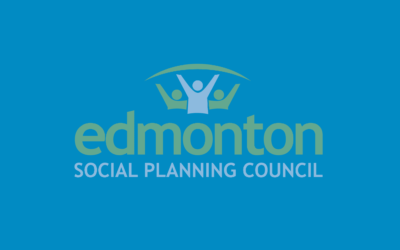By Douglas Roche, Edmonton Journal
Click here to view original Edmonton Journal article.
Why do more than 100,000 Edmontonians still live in poverty, about 30 per cent of them children? Why do 143,200 children in Alberta — 16.2 per cent — live below the low-income measure? Why, in the years 1982-2011, did the top one per cent of tax filers get a 65-per-cent increase in their after-tax incomes while the bottom 99 per cent got only a 5.5-per-cent increase?
These statistics come from the Edmonton Social Planning Council, which, in its 75 years, has built a reputation for accurate assessments of the quality of life in Edmonton.
The council states in its latest report, No Change: After 25 years of Promises, It Is Time to Eliminate Child Poverty, continuing child poverty is directly related to the systemic issues that create barriers affecting women, immigrants, aboriginal peoples and people with health issues. The poor do not seem to have been a priority with the Alberta government.
But the old government is gone, and a new political era has begun. Doubtless, Premier Rachel Notley has a very full plate. Many well-off individuals may initially protest the moment she moves, through taxation changes or other measures, to make Alberta a more equitable place. Nonetheless, this is the moment to remind our new government that children’s well-being must become a priority.
I believe Notley and her government will want a fairer society, but market, credit ratings and other structural demands to maintain a “steady course” will weigh heavily on the new decision-makers. She cannot afford to lower investment confidence in the energy and construction sectors by precipitate action to cure fiscal imbalances. She must proceed in a careful manner and head off any spurious charges that, by diverting economic resources to the poor, she is waging “class warfare” against the rich.
Considerable education of the public is required to ensure there is a common understanding of the common good, and a fair society for all. This is a huge challenge.
This new moment in Alberta will coincide with an unprecedented new program, the Sustainable Development Goals, a complex intertwining of economic and social projects, now getting underway at the United Nations. Many will be familiar with the Millennium Development Goals, a global partnership for development begun in 2000, which set 15-year targets on aid, trade, debt relief and improved access to essential medicine and new technologies.
Civil society organizations, the private sector, philanthropic organizations and international organizations were enlisted to expand government efforts to achieve eight goals. These included halving the rate of extreme poverty and hunger, universal primary education, the empowerment of women, reduced childhood mortality, improved maternal health, combating HIV/AIDS and other diseases, and environmental sustainability.
Its success in mobilizing diverse sectors in addressing universal poverty has led the UN to attempt its most ambitious project yet. With the Millennium Development Goals (MDGs) set to expire in 2015, another plan was organized to take the development process to 2030.
Secretary-General Ban’s document, The Road to Dignity by 2030: Ending Poverty, Transforming All Lives and Protecting the Planet, reveals the scope of the new Sustainable Development Goals he has presented to world leaders. To cope with an increasingly aging, urbanized population expected to jump from the present seven billion to nine billion by 2050, Ban wants no less than a universal agenda for a shared future, one that is people-centred and planet-sensitive.
“We now know that extreme poverty can be eradicated within one more generation,” he said. “The MDGs have greatly contributed to this progress, and have taught us how governments, business, and civil society can work together to achieve transformational breakthroughs.”
At the heart of the Sustainable Development Goals is the belief that no society can reach its full potential without including the voices of women, youth and minorities, indigenous people, the aged and disabled, and migrants and refugees.
The ideas underlying the UN’s Sustainable Development Goals are applicable in Alberta. Given we have a new government, now is the time to implement them.
These universal ideas speak to the common good. Modern economists no longer speak of the government and business or the government and civil society; they speak in terms of new partnerships for strengthened human development. Business and civil society together form the bedrock of good governance. The genius of the Sustainable Development Goals is to engage the private sector to invest in human development in the knowledge that governments will maintain political stability on the ground.
By building new partnerships among diverse sectors, Notley and her colleagues can build a truly inclusive new Alberta society.
This is an adaptation of former senator Douglas Roche’s address to the 75th anniversary meeting of the Edmonton Social Planning Council on May 21. Roche is a former senator, Canadian Ambassador for Disarmament and chairman of the UN Committee on Disarmament.


